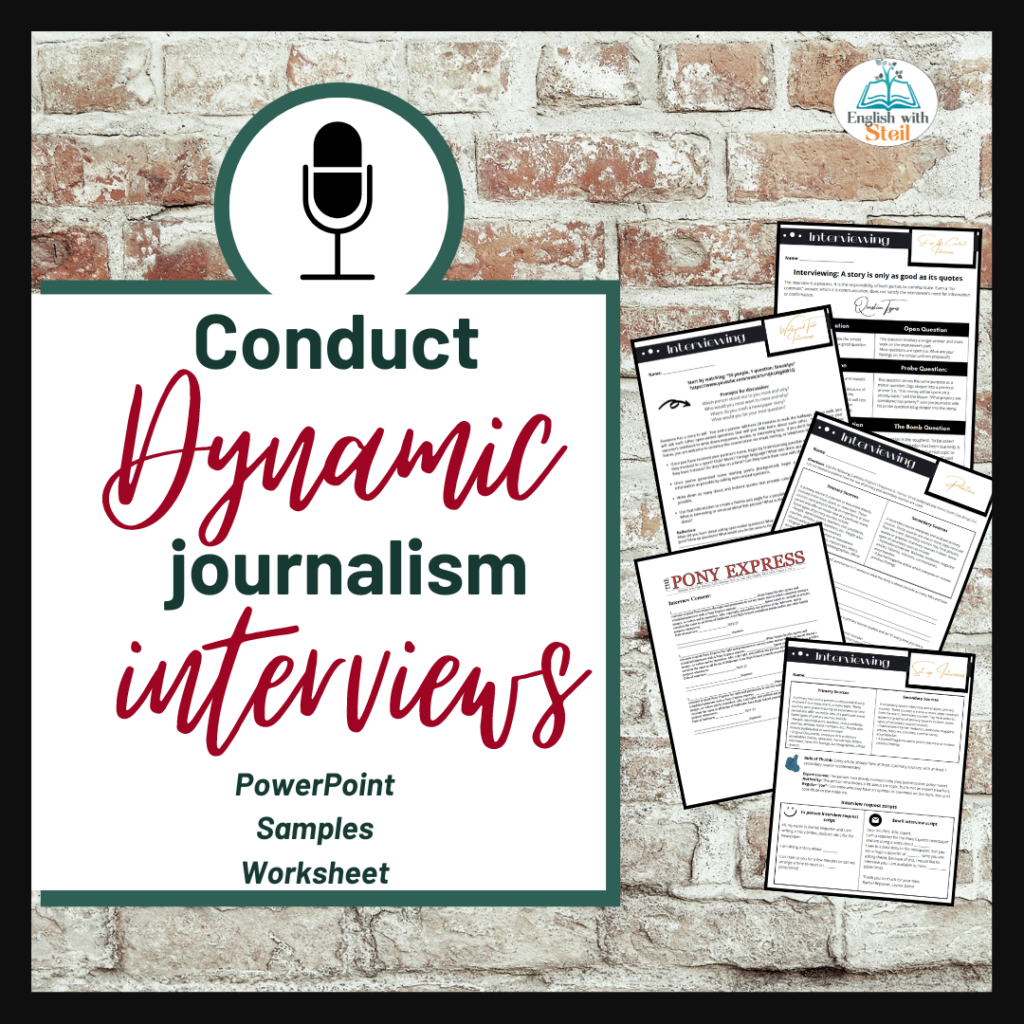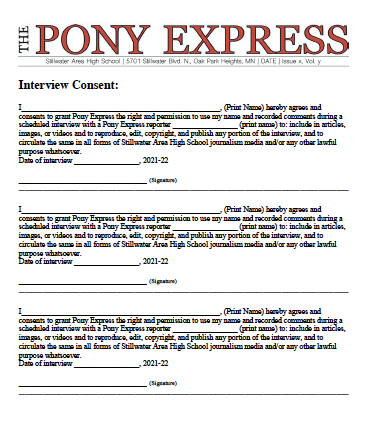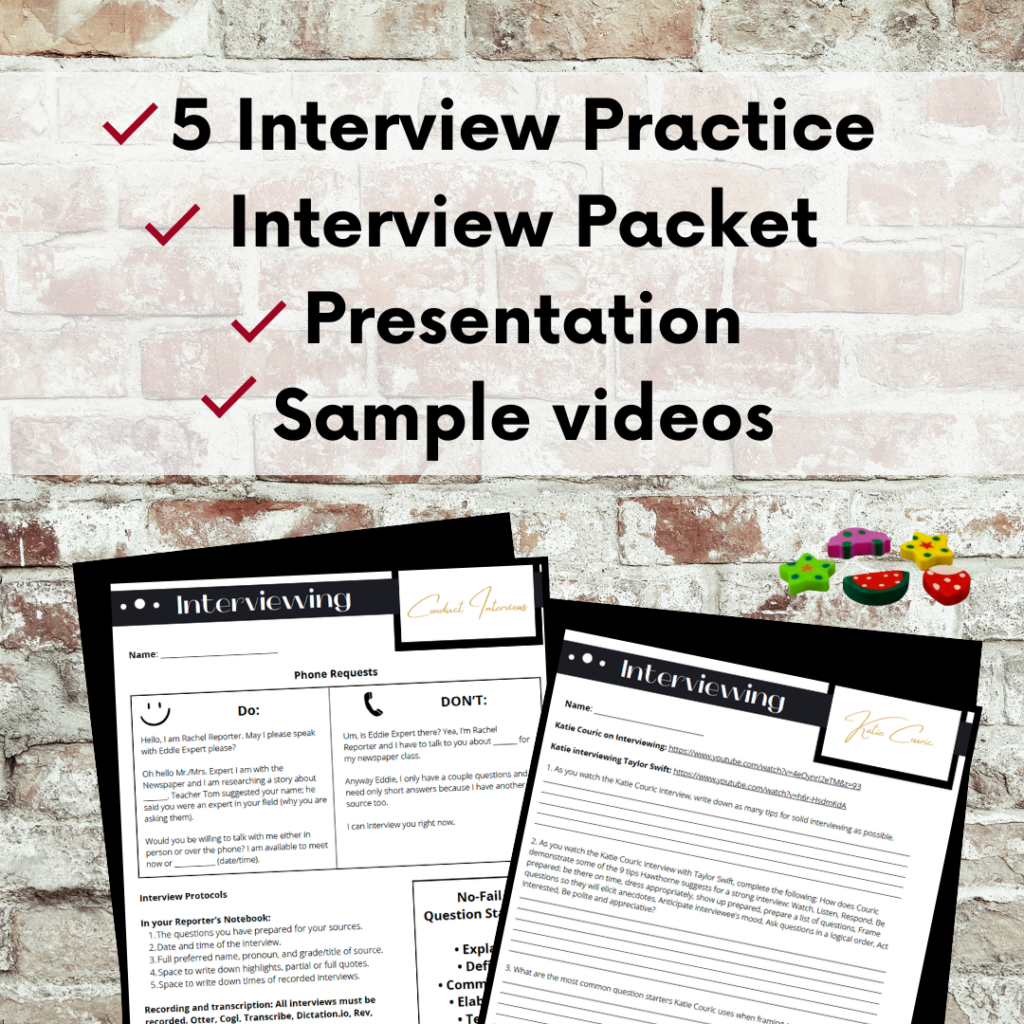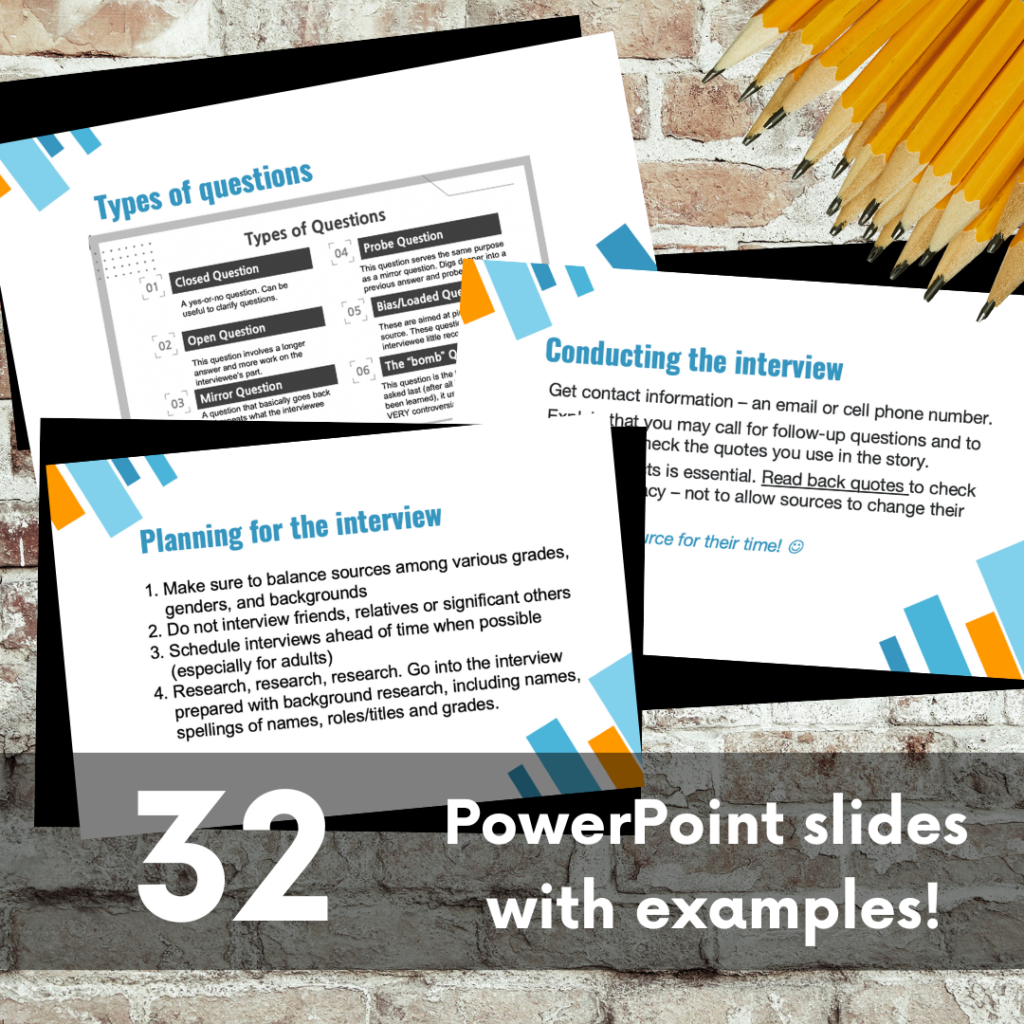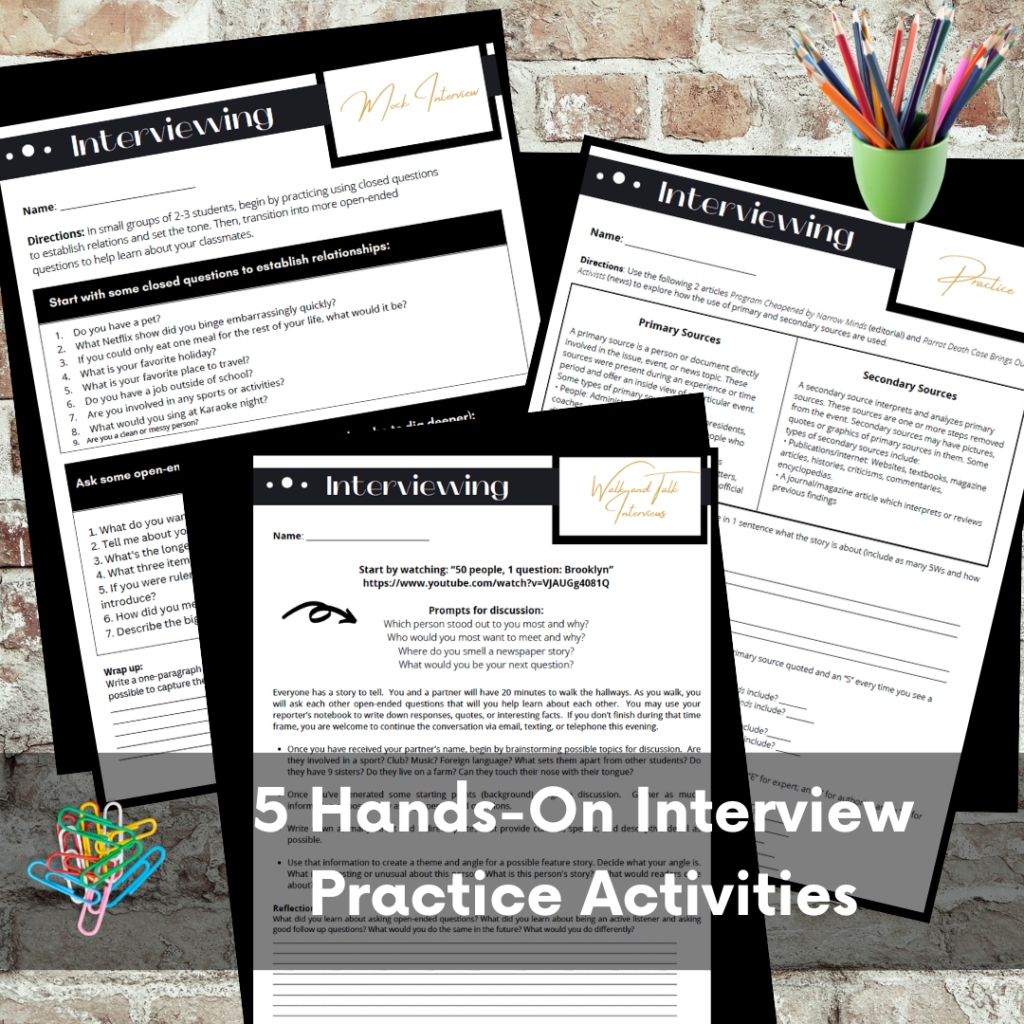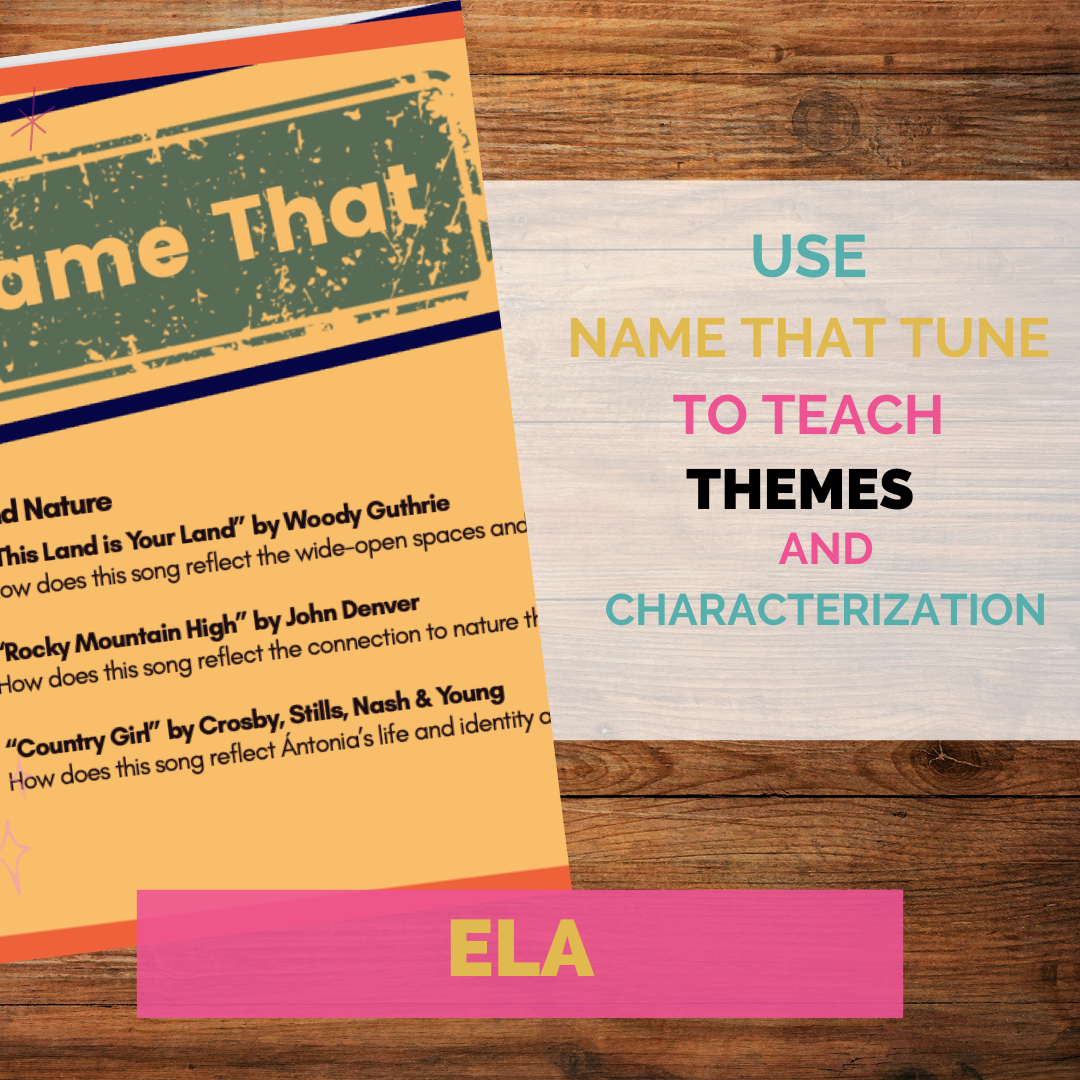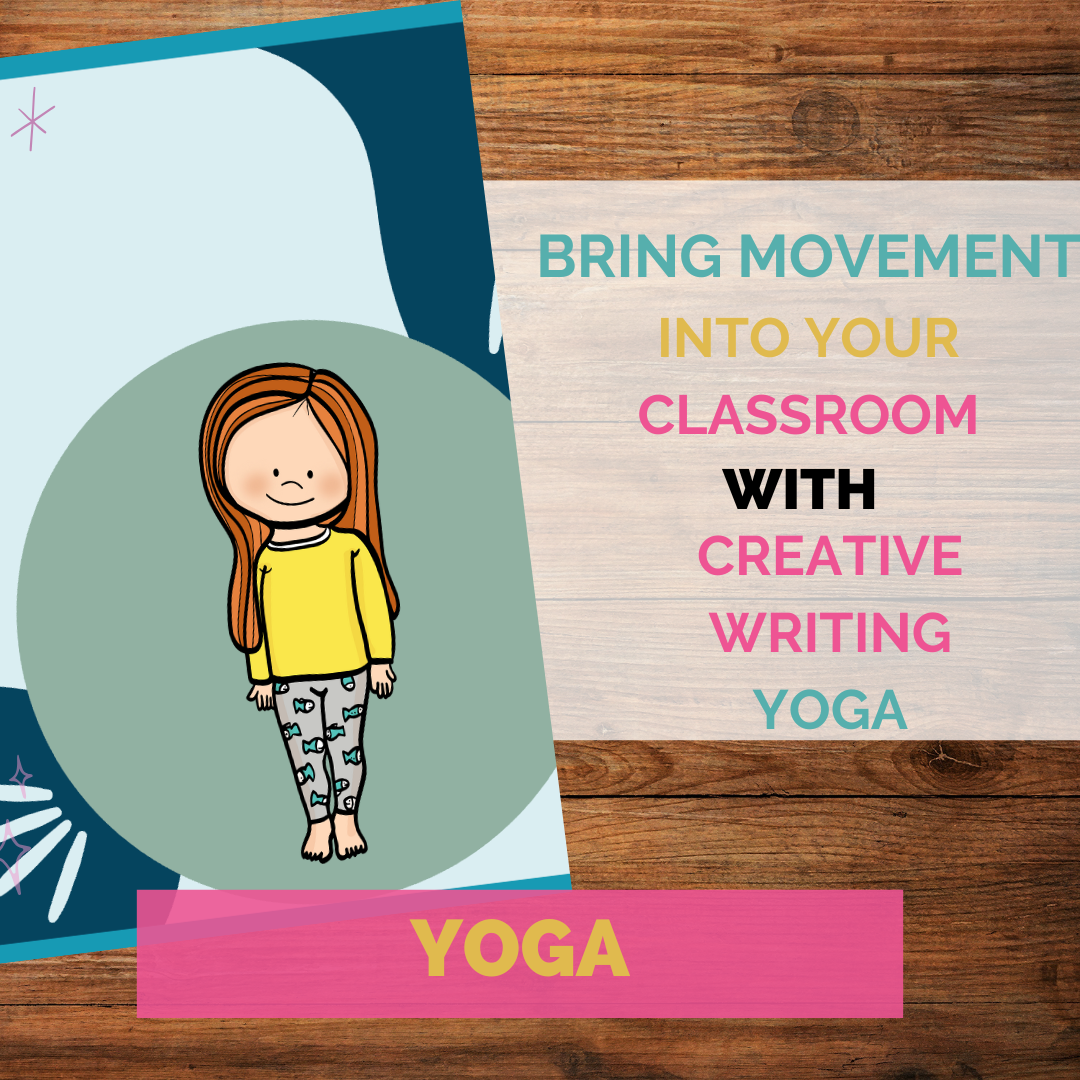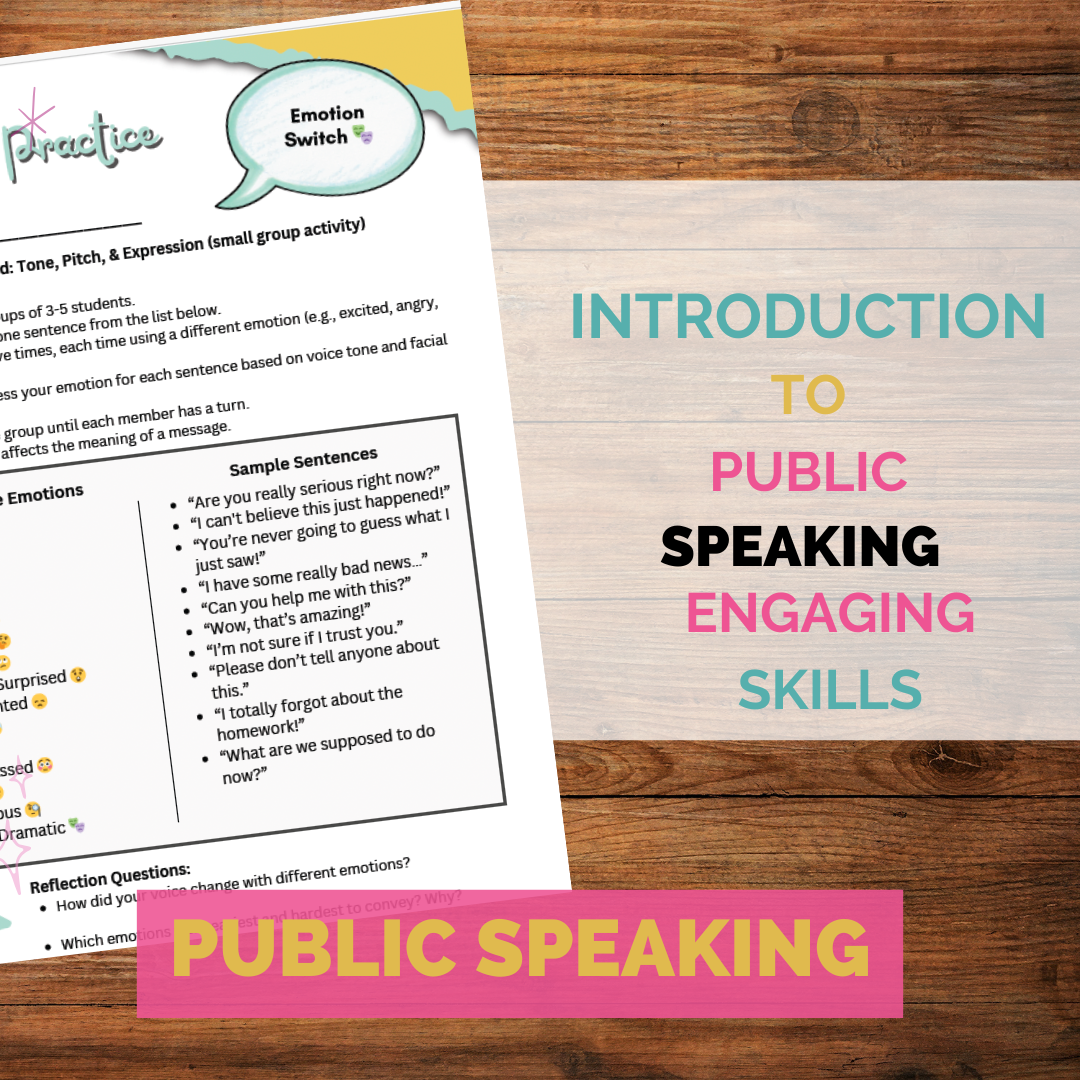In the world of journalism, interviews are the backbone of news reporting. Conducting a strong news interview is a skill that every journalist should strive to master. Whether you’re a seasoned journalist or a budding reporter, this blog post will provide you with valuable insights and practical tips to conduct interviews that yield accurate, compelling, and informative news stories.
Conducting strong journalism interviews is an essential skill for any budding reporter. It’s a blend of art and science that can turn an ordinary conversation into a compelling story. Getting your students excited about interviewing not only hones their communication skills but also ignites their curiosity about the world around them. Let’s dive into some tips, tricks, and activities to make teaching this topic a breeze!
The Basics of a Great Interview
Before your students hit the field, they need to understand the fundamentals of a strong interview. Here’s a quick rundown:
Preparation is Key: Good interviews start long before the questions are asked. Students should research their subjects thoroughly, understanding their background, the topic at hand, and any relevant context.
Crafting Questions: Encourage students to write open-ended questions that invite detailed responses. Instead of asking, “Did you like the event?” they should ask, “What was your most memorable moment from the event and why?”
Active Listening: Listening is just as important as asking questions. Students should pay close attention to their interviewee’s responses and be ready to ask follow-up questions that delve deeper.
Building Rapport: A comfortable interviewee is a talkative interviewee. Teach students how to establish rapport by starting with some light, friendly conversation to put their subject at ease.
Recording and Note-taking: Whether using a digital recorder or taking notes by hand, students need to ensure they accurately capture the interview. Teach them the importance of reviewing their notes or recordings soon after the interview to fill in any gaps while the conversation is still fresh in their minds.
Conducting Strong News Interviews
1. Preparation is Key
Before you even approach your interviewee, thorough preparation is essential. This includes:
Research: Familiarize yourself with the subject matter, the interviewee’s background, and any relevant context. This ensures that you can ask informed and relevant questions.
Setting Objectives: Clearly define the purpose and goals of your interview. What do you hope to learn or convey through this interview? Having a clear objective guides your line of questioning.
2. Establish Trust and Rapport
Building a strong rapport with your interviewee is crucial for a successful interview. Here’s how to do it:
Introduce Yourself: Start by introducing yourself, your publication, and the purpose of the interview. Be professional and courteous.
Active Listening: Show genuine interest in what the interviewee is saying. This helps build trust and encourages them to open up.
Empathy: If the interviewee is discussing sensitive or emotional topics, be empathetic and respectful. Let them know you’re there to listen and share their story accurately.
3. Ask Open-Ended Questions
Open-ended questions encourage interviewees to provide detailed and insightful responses. Avoid questions that can be answered with a simple “yes” or “no.” Instead, use questions like:
- “Can you describe your experience when…”
- “What led you to…”
- “How do you envision…”
4. Active and Probing Follow-Ups
Listening actively is essential, but don’t hesitate to ask follow-up questions to dig deeper into the topic. These questions can provide valuable context and details for your story. For example:
- “Could you elaborate on that point?”
- “Can you provide an example of what you mean?”
- “How did that make you feel?”
5. Respect Silence and Pauses
Sometimes, interviewees need a moment to collect their thoughts or emotions. Don’t rush to fill every silence with a question. Allow for pauses, and the interviewee may reveal additional insights when they are ready.
6. Record and Take Notes
It’s crucial to record the interview (with the interviewee’s consent) or take detailed notes. This ensures accuracy in your reporting and allows you to revisit the interview for additional insights during the writing process.
7. Stay Neutral and Objective
Journalists should maintain objectivity and avoid expressing personal opinions during interviews. It’s your role to report the interviewee’s perspective, not to advocate for a particular viewpoint.
8. Respect Privacy and Boundaries
Respect the interviewee’s privacy and boundaries. If they decline to answer a question or express discomfort with a topic, move on and respect their wishes.
9. Wrapping Up the Interview
As the interview concludes, give the interviewee an opportunity to share any final thoughts or information. Thank them for their time, and if possible, provide your contact information in case they wish to follow up or clarify anything.
10. Fact-Checking and Verification
After the interview, cross-reference the information provided by the interviewee with your research and other sources. Ensure the accuracy of your reporting, and if any discrepancies arise, seek clarification from the interviewee.
Final Thoughts
Conducting strong news interviews is a fundamental skill for journalists. With thorough preparation, active listening, and a commitment to objectivity, you can gather the information and quotes necessary to craft compelling and accurate news stories. By following these tips and continually refining your interviewing techniques, you’ll become a more effective and respected journalist in the field of news reporting.
Teaching students how to conduct strong journalism interviews is not just about imparting a skill – it’s about fostering curiosity, empathy, and critical thinking. By practicing these techniques and engaging in hands-on activities, your students will become confident interviewers ready to uncover and share amazing stories.
I hope these tips and activities help you create an exciting and dynamic classroom experience. Let’s inspire the next generation of journalists together!
Happy interviewing!
